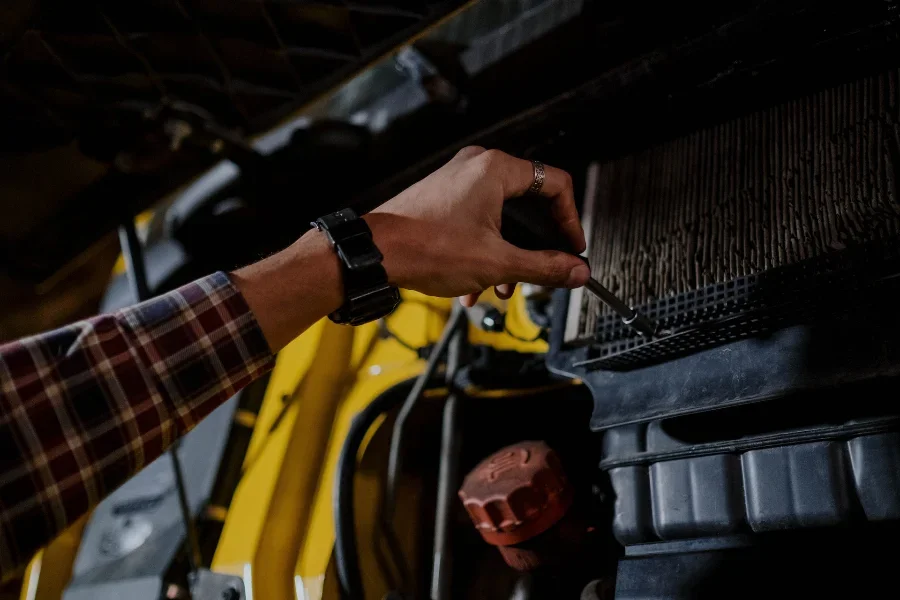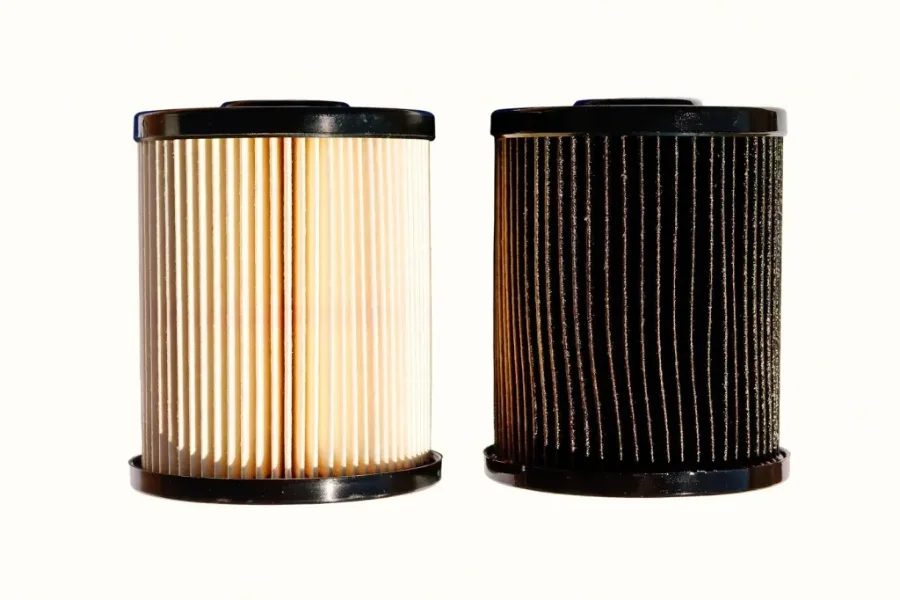Car filters are an essential component of a vehicle’s engine system. Therefore, one needs to maintain and change car filters regularly to have the vehicle operating optimally.
According to Technavio, the automotive repair and maintenance service market is estimated to grow at a compound annual growth rate (CAGR) of 3.84% between 2022 and 2027, with an increase of USD 93.19 billion.
Car filters are essential as they help remove impurities and contaminants from the air, fuel, and oil, ensuring the engines operate at optimal levels. However, the filters can become dirty and clogged over time, leading to decreased performance and potential engine damage.
In this guide, we will examine the types of car filters, signs that indicate it is time to change a car filter, and how to change them.
Table of Contents
Types of car filters
Signs it’s time to change a car filter
How to change a car filter
Conclusion
Types of car filters
There are three major car filters you need to look at when doing regular car maintenance: air, oil, and fuel filters.
Air filters

Just as one needs oxygen to breathe, cars need oxygen for combustion. The air filters remove dust, dirt, and debris from the air that enters the engine, which ensures a good mix of air and fuel to improve fuel efficiency.
Car air filters are made of creased materials like cotton, foam, or synthetic paper and come in different shapes: they can be panels, circular or cylindrical.
Over time, dust and debris may clog the air filters, making it harder for air to pass through. This leads to decreased fuel efficiency and causes the engine to work harder than it needs to.
Oil filters

The oil filter removes contaminants like dirt, metallic particles, and oxidized oil from the engine, maintaining the continuous oil flow. Car oil filters purify motor oil to allow it to work effectively. One should change the oil filter regularly to ensure engine protection and allow it to work efficiently.
Fuel filter

A fuel filter removes impurities like grit, dust, and rust from the fuel that enters the engine. It protects the fuel injectors and maintains the performance and longevity of the car engine. A dirty fuel filter will cause the engine to misfire or stall, leading to decreased performance and potential damage.
Signs it’s time to change a car filter
A car will often give you signs that it is time to take it in for repair and maintenance. Here are the signs for when a car’s filters are due for a change.
Decreased fuel efficiency
The most common sign it’s time for a car filter change is the decrease in gas mileage. When the air filter is clogged and dirty, the airflow is restricted and this causes the engine to work harder than it should. As a result, the engine needs more fuel to produce the same power, leading to fuel inefficiency.
When the car is not getting as many miles per gallon as it used to, it may be time to change the air filter.
Engine misfires and stalling
When a car is due for a filter change, it will get hard to start. It may also cause the car to misfire and stall. This is because less air passes through the air filters, and there is less combustion of oxygen. The unburnt fuel forms soot which accumulates around the spark plugs preventing them from sparking as they should and igniting the fuel.
Unusual engine sounds and vibrations
A dirty oil filter will cause a lack of lubrication to the engine parts, making them rub against each other, resulting in vibrations and unusual sounds. So, when a car produces unusual sounds, this may lead to engine problems, and this could mean it is time for an oil and air filter change.
Exhaust smoke
Black smoke from a vehicle is never a good sign. So, if black smoke comes from a car’s exhaust, it could be a sign that the air filter or the fuel filter needs to be changed.
A dirty air filter causes an improper air-to-fuel ratio leading to black smoke. Moreover, a dirty fuel filter may stop the fuel from reaching the engine, resulting in black smoke.
A dirty and clogged filter
If, upon inspection, the car filters are dirty and clogged, it is time to change them. A dirty or clogged filter can cause decreased performance and potential engine damage.
How to change a car filter
The process for changing a car’s filter varies depending on the type of filter. Here are the basic steps to changing car filters.
Air filter
Air filters should be changed every 12000-15000 miles or once a year, whichever comes first. However, if you drive in dusty or dirty conditions, change the filter more regularly.
Here are the steps to changing an air filter
- Locate the air filter housing under the hood. It is usually a large plastic box with a hose connected to it.
- Open the housing by unlatching the clips or removing the screws.
- Remove the old filter taking note of how it was placed to ensure you install the new one correctly.
- Insert the new air filter.
- Close the housing and secure it with the clips or screws.

Oil filter
Change the oil filter every time the engine oil is changed, usually every 5000-7000 miles or every six months, whichever comes first.
Here are the steps to changing the oil filter.
- Locate the oil filter: it is cylindrical and found under the hood.
- Carefully remove the old oil filter with an oil filter wrench.
- Apply a small amount of oil to the new filter gasket.
- Screw the new filter into place by hand and tighten it using an oil filter wrench.
Fuel filter
You should change fuel filters every 20000-30000 miles or as the manufacturer recommends. However, if you notice signs it is time to change a fuel filter, like engine misfiring or stalling, change it immediately.
Here are the steps to change the fuel filter.
- Locate the fuel filter. It is usually near the fuel tank or along the fuel line.
- Relieve the fuel system pressure by following the manufacturer’s instructions. It usually involves disconnecting the fuel pump fuse or relay and starting the engine until it stalls.
- Disconnect the fuel lines from the filter.
- Remove the old filter and replace it with the new one.
- Reconnect the fuel lines and follow the manufacturer’s instructions to re-pressurize the fuel system.
Conclusion
Car filters are an important part of a vehicle, and their maintenance is essential to ensure the engine operates at optimal levels. However, when overlooked, they can cause damage to the car’s engine.
Cars will generally give you signs it is time to change the filters: They may stall, have low fuel efficiency, or make unusual noises. So every car owner should look out for the signs mentioned in this article to know when it is time for new car filters. To purchase quality car filters head over to Alibaba.com.



